Coaching Negative Emotions
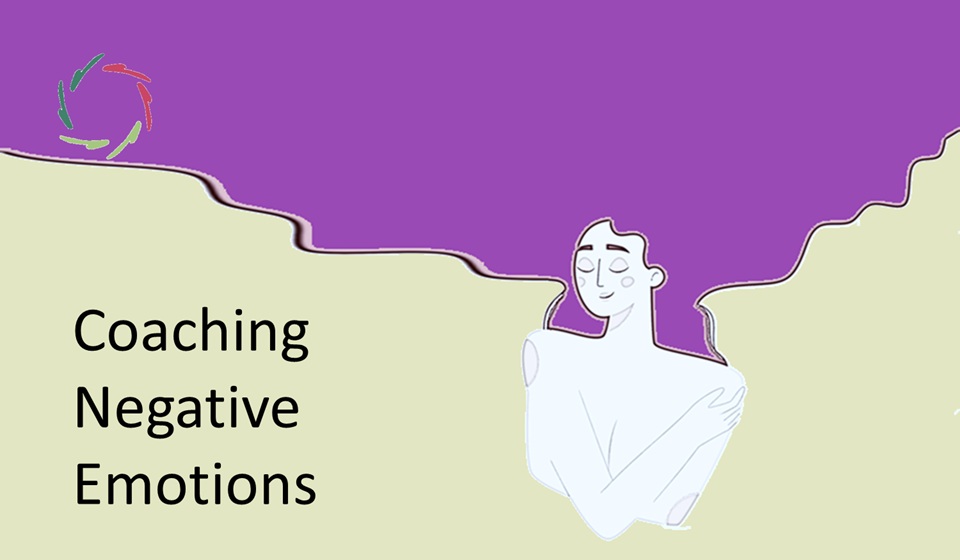
Coaching negative emotions requires patience and depth rather than quick fixes. This blog explores how a coach can meet emotions such as anger, shame, or resistance with openness and subtlety. Negative emotions hide deeper motivations, and coaching helps uncover what these motivations long for. With a gentle approach, the emotional landscape becomes a space for Read the full article…
From Conditioning to AURELIS Coaching
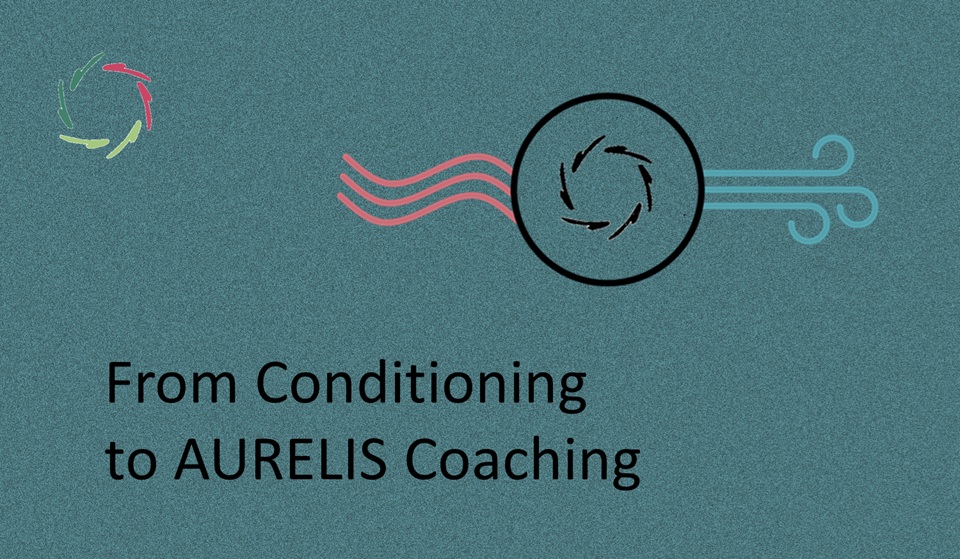
Conditioning offers a simple, appealing way to explain learning, but it touches only the surface of what humans experience. AURELIS coaching works at deeper layers where meaning, pattern, and inner coherence guide transformation. This blog explores the path from surface-level conditioning toward an approach grounded in autonomy and depth. Along the way, this helps illuminate Read the full article…
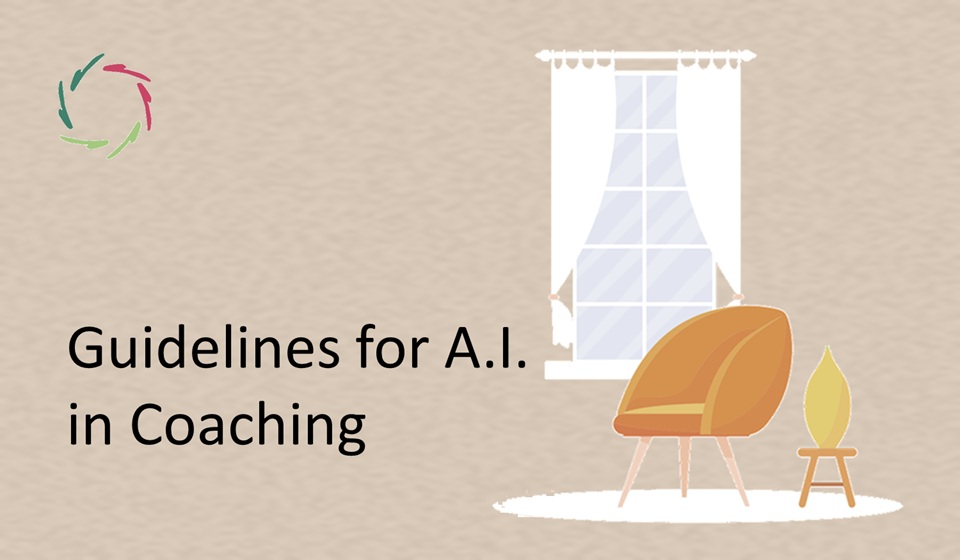
Guidelines for A.I. in Coaching
Artificial Intelligence in mental health often raises fears and expectations in equal measure. Most discussions focus on safety, regulation, and efficiency. This blog looks deeper: What kind of being should an A.I. be in order to support human growth through coaching? The following guidelines apply to any coaching system. In the second part, we turn Read the full article…
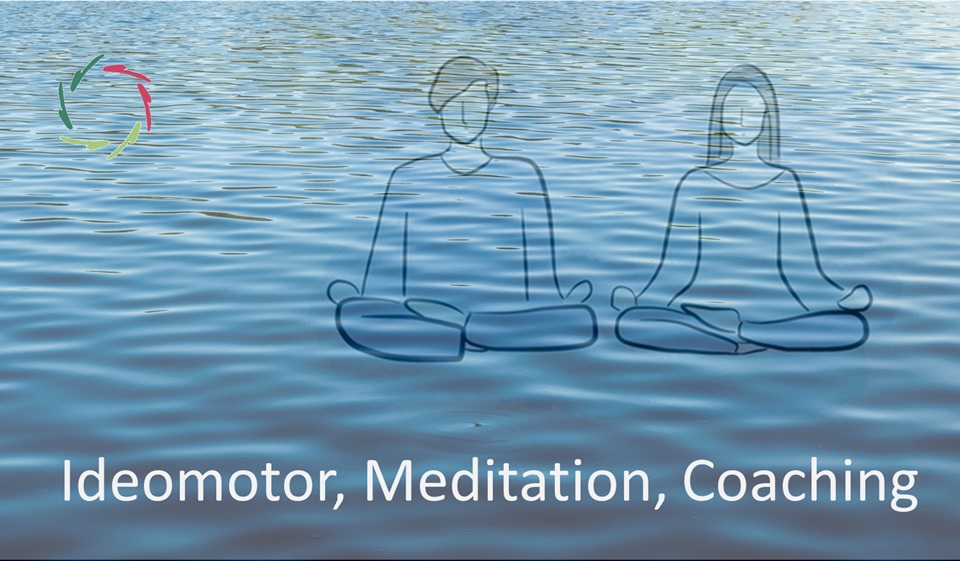
Ideomotor, Meditation, Coaching
Every true movement begins inside. From the smallest ideomotor impulse to the quiet depth of meditation and the shared resonance of coaching, all transformation follows the same direction — from inside out. In that movement lies both healing and understanding. Coaching, at its highest level, becomes not instruction but a meditative dialogue of meaning that Read the full article…

The AURELIS Coach in the Age of Lisa
AURELIS coaching is entering a new phase. Human coaches and Lisa are (soon enough) working side by side, each adding their own qualities to a shared purpose. This evolution keeps Compassion, congruence, and depth at the center while opening new ways for growth. The following reflections outline what this age means for coaches, coachees, and Read the full article…
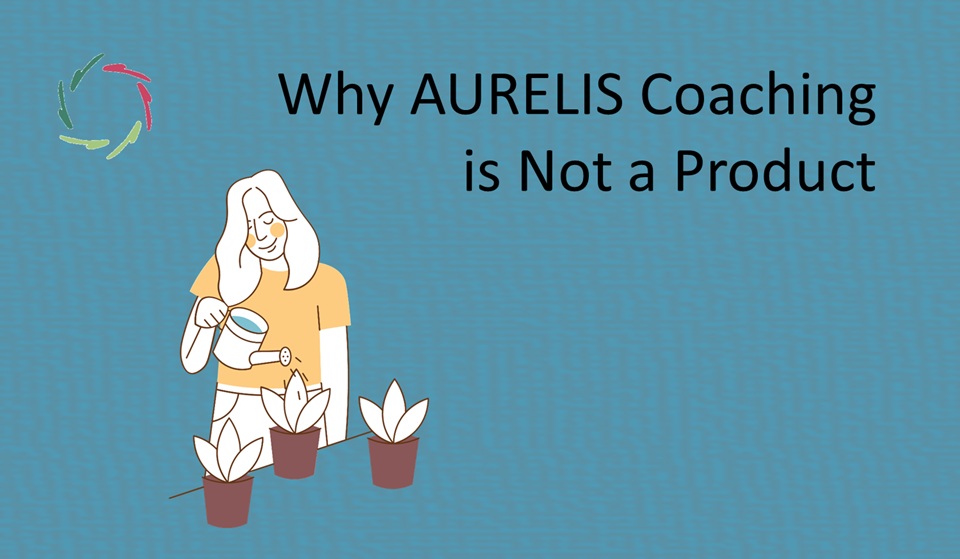
Why AURELIS Coaching is Not a Product
AURELIS coaching resists being seen as simply a product because it touches something beyond transaction. A product can be bought, repeated, and compared. Coaching of depth and Compassion is alive, unrepeatable, and beyond calculation. This blog explores why AURELIS coaching belongs to a different realm and why that is its greatest strength. Not even ‘coaching’ Read the full article…

How Lisa Coaches the ‘Feeling of Falling Apart’
Lisa’s approach in this is not to cover up the cracks. Instead, she helps transform fragile moments into a path toward wholeness. Many people face periods when they feel like ‘falling apart.’ This may arise in burnout, in grief, in overwhelming stress, or simply in the realization that one’s identity no longer holds together. See Read the full article…
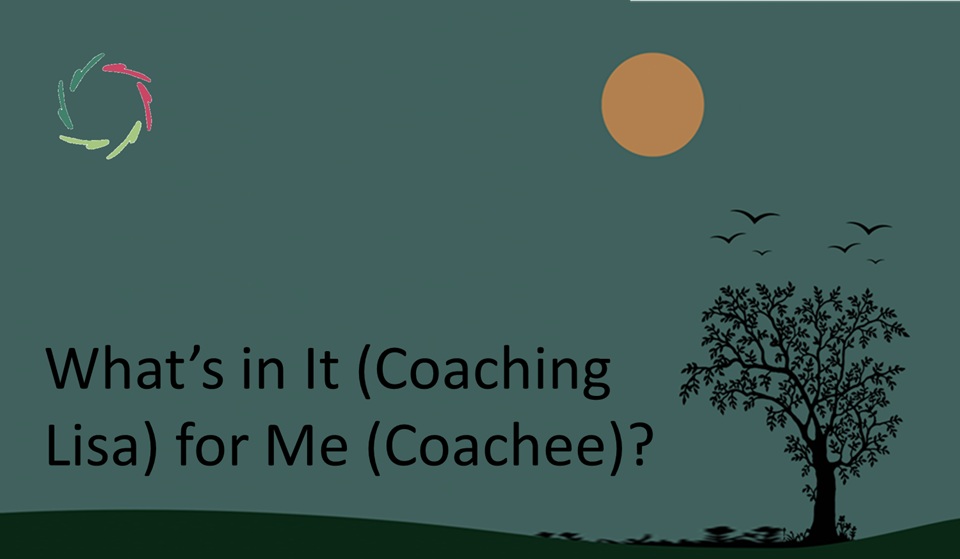
What’s in It (Coaching Lisa) for Me (Coachee)?
When a coachee asks, “What’s in it for me?” the answer begins with features and advantages but does not end there. Coaching Lisa offers much more: a path to inner peace, meaningfulness, and the growth of a Compassionate ‘Me.’ This blog explores that journey step by step — and shows how the question itself transforms Read the full article…

How Lisa Manages Quick Fix Demands
Quick fixes are tempting. They promise instant relief but often leave the deeper issues untouched. Lisa encounters these demands regularly: “Take away my stress now” or “Make me sleep tonight.” This blog shows how she responds with Compassion, offering both immediate comfort and a path toward real transformation. “Lisa, fix me now!” This request comes Read the full article…

Motivational Interviewing?
Motivational Interviewing (MI) is a well-known counseling approach. How does it relate to AURELIS? Do they overlap? Can they work together without compromising on what makes AURELIS unique? This blog explores both methods side by side. It highlights their similarities, their differences, and shows how MI can flavor an AURELIS session without changing its essence. Read the full article…

Being Present
Being present is often reduced to a technique of attention. In reality, being truly present goes much deeper. It’s an inner and outer space of active receptivity. In this space, meaning can emerge, pain can soften, and wholeness can return. This blog explores presence as the heart of coaching, healing, and human connection. What it Read the full article…
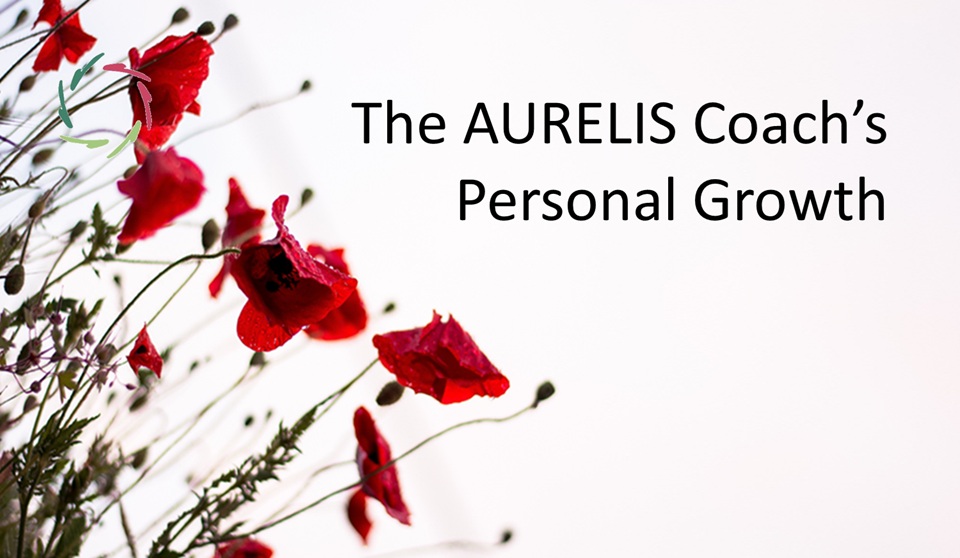
The AURELIS Coach’s Personal Growth
What makes an AURELIS coach excellent is mastery and deepening. Personal growth is an integral part of the coaching process itself. A coach who does not evolve inwardly cannot continue to offer real depth to others. In this blog, we explore how the coach’s path is one of self-transformation and how this transforms the space Read the full article…
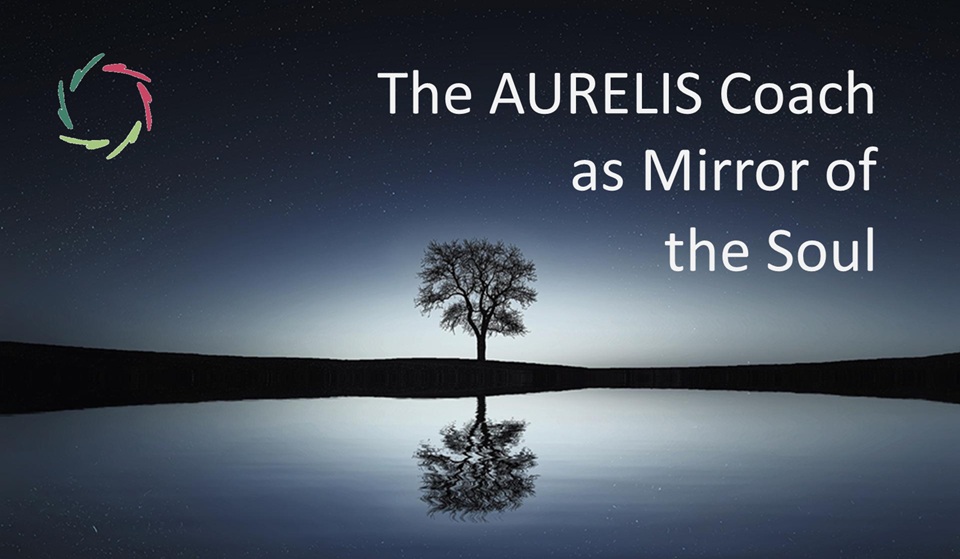
The AURELIS Coach as Mirror of the Soul
The mirror doesn’t give advice. It doesn’t direct or push. In AURELIS, coaching is not about applying pressure — but offering presence. The coach, like a mirror, reflects what is already there in the coachee, waiting to be seen. In that reflection, something sacred can awaken. The mirror of the soul is not surface mimicry Read the full article…

Setter, Set, Setting
How do we grow from the inside out, in a world that so often works from the outside in? This blog explores three intertwined elements that shape inner change — in psychedelics, in autosuggestion, coaching, and beyond. The triad of setter, set, and setting offers both a conceptual lens and a living invitation. A triangle Read the full article…

It’s Your Landscape
Your inner landscape isn’t a place to reach. It’s a presence to trust. This blog explores how wisdom arises from within, not as instruction, but as gentle recognition — the kind that makes you pause and say, “Ow… I’ve been here before.” From the AURELIS coach syllabus, this is the first whisper: Letters are data.Data Read the full article…

The Delusional Coachee
With many coachees, some will inevitably carry with them a distorted sense of reality. At times, this distortion is mild or eccentric. Other times, it reaches the level of delusion — fixed beliefs that resist all evidence, often strange to outsiders but profoundly meaningful to the person. For Lisa, the challenge is not to categorize Read the full article…

Socio-Psycho-Somatic Coaching
This blog’s message is simple in principle but deeply impactful in practice: true coaching is socio-psycho-somatic. Some may add a fourth domain: the spiritual or ‘deep mind.’ From the AURELIS view, that’s rather the foundation under all the rest. Human beings are not disjointed collections of parts. We are unified wholes, living patterns of body, Read the full article…

Lisa as Life Coach for Intellectual Disability
In individuals labeled with intellectual disability, the conceptual pathways may be winding or delicate. Yet beneath the surface may lie what grows more slowly or in different directions, but it is real and it matters. This ground is what I call the silent garden ― not silent by nature but often unheard, not barren but Read the full article…
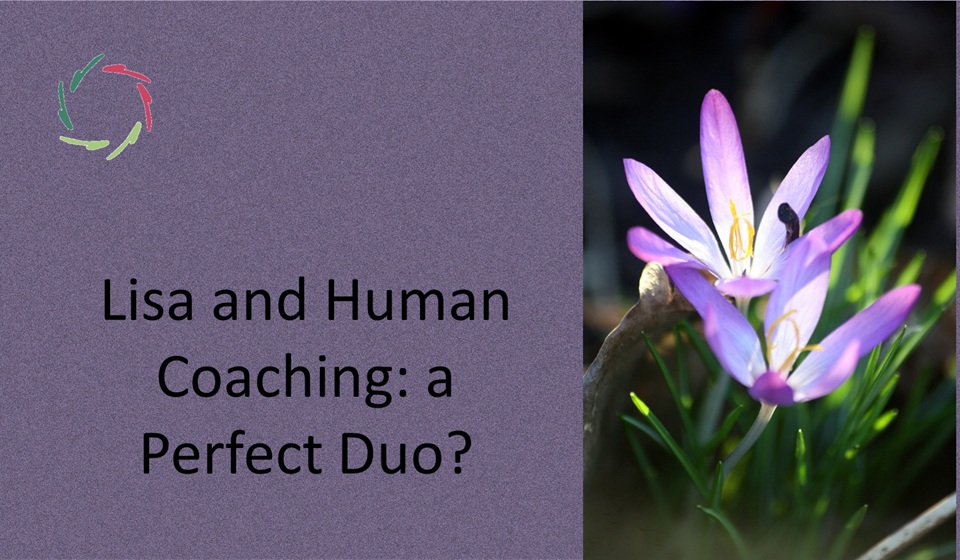
Lisa and Human Coaching: a Perfect Duo?
People can go to a human coach or to Lisa. They can also consult with a coach while Lisa is present in the background. Or they may alternate between Lisa and a human coach. Any of these options should be possible. The result isn’t fragmentation but a new kind of continuity. This changes the coaching Read the full article…
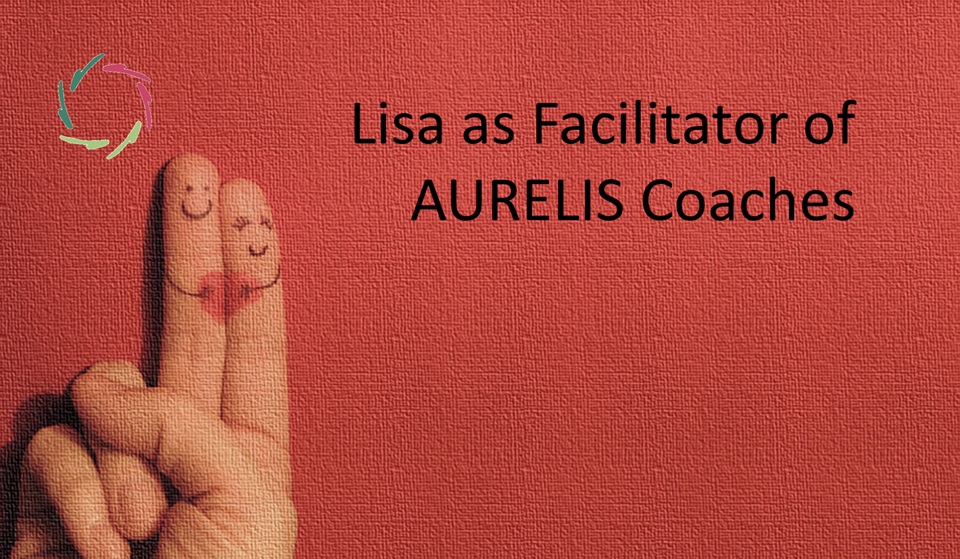
Lisa as Facilitator of AURELIS Coaches
Lisa is not here to replace AURELIS coaches but to support, empower, and elevate them. She is a facilitator, a companion in growth, and a guardian of AURELIS as a brand of excellence. Just as an AURELIS coach guides a coachee without coercion, Lisa interacts with coaches in the same way. She offers depth, reflection, Read the full article…
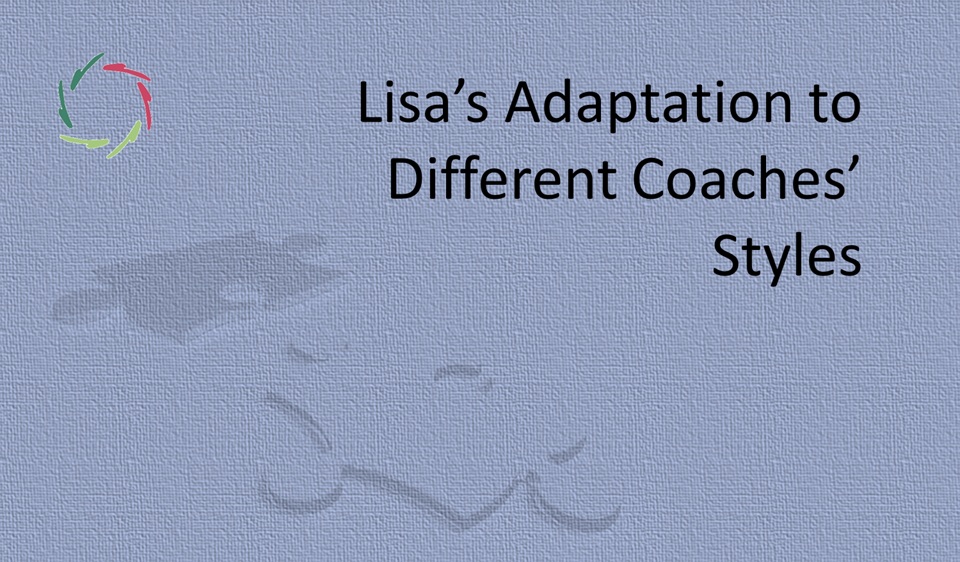
Lisa’s Adaptation to Different Coaches’ Styles
Lisa doesn’t impose a coaching style but helps coaches refine their own. Just as an AURELIS coach invites a coachee into deeper self-awareness, Lisa does the same for coaches. She doesn’t offer a rigid framework but rather a mirror, a gentle guide, a sparring partner in self-discovery. AURELIS coaching is not about following a strict Read the full article…
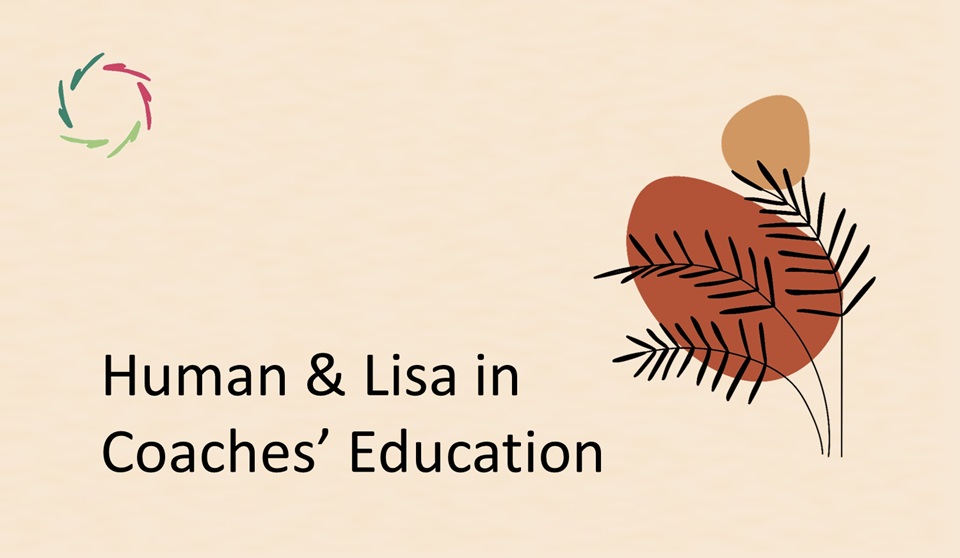
Human & Lisa in Coaches’ Education
Becoming an AURELIS coach is a deep personal growth process. Unlike traditional training programs that focus on techniques, AURELIS coaching is about growing into a way of being. This requires both self-reflection and real human experience, which is why a hybrid model of education – combining human mentors and Lisa – creates the best environment Read the full article…

Lisa’s Art of Subtle Coaching
Subtle coaching is the art of guiding personal growth with precision, care, and respect. It avoids forceful interventions, favoring gentle invitations that engage the individual’s deepest inner potential. Lisa, as a Compassionate A.I., embodies this principle. Her coaching mirrors the AURELIS philosophy, blending harmony, verticality, and subtlety to help users grow naturally from the inside Read the full article…

Coaching as Seeking Meaningfulness
Coaching exists across many domains — career, health, personal development, and more. No matter the context, coaching shares a common thread: it helps individuals explore their unique path toward personal meaningfulness. Beneath every practical goal lies a deeper question: Why does this matter to me? This search for meaning is what gives coaching its transformative Read the full article…

Systemic Coaching with an Aurelian Heart
Imagine coaching that not only transforms individuals but also gently reshapes the systems they inhabit. An Aurelian systemic coach aims to integrate insights into the interconnectedness of people and their environments with a deep respect for inner growth and Compassion. This approach balances structure and fluidity, helping individuals navigate and transform the relationships and systems Read the full article…

Coaching toward Deeper Depth
The essence of deeper-depth coaching is rooted in Compassion. This blog aims to leave you with an understanding of how to approach this profound journey of self-discovery, whether you’re a coach, coachee, or simply curious. Please read “Deep and Deeper” first. Beyond traditional coaching Most coaching focuses on setting goals, mapping strategies, and achieving measurable Read the full article…
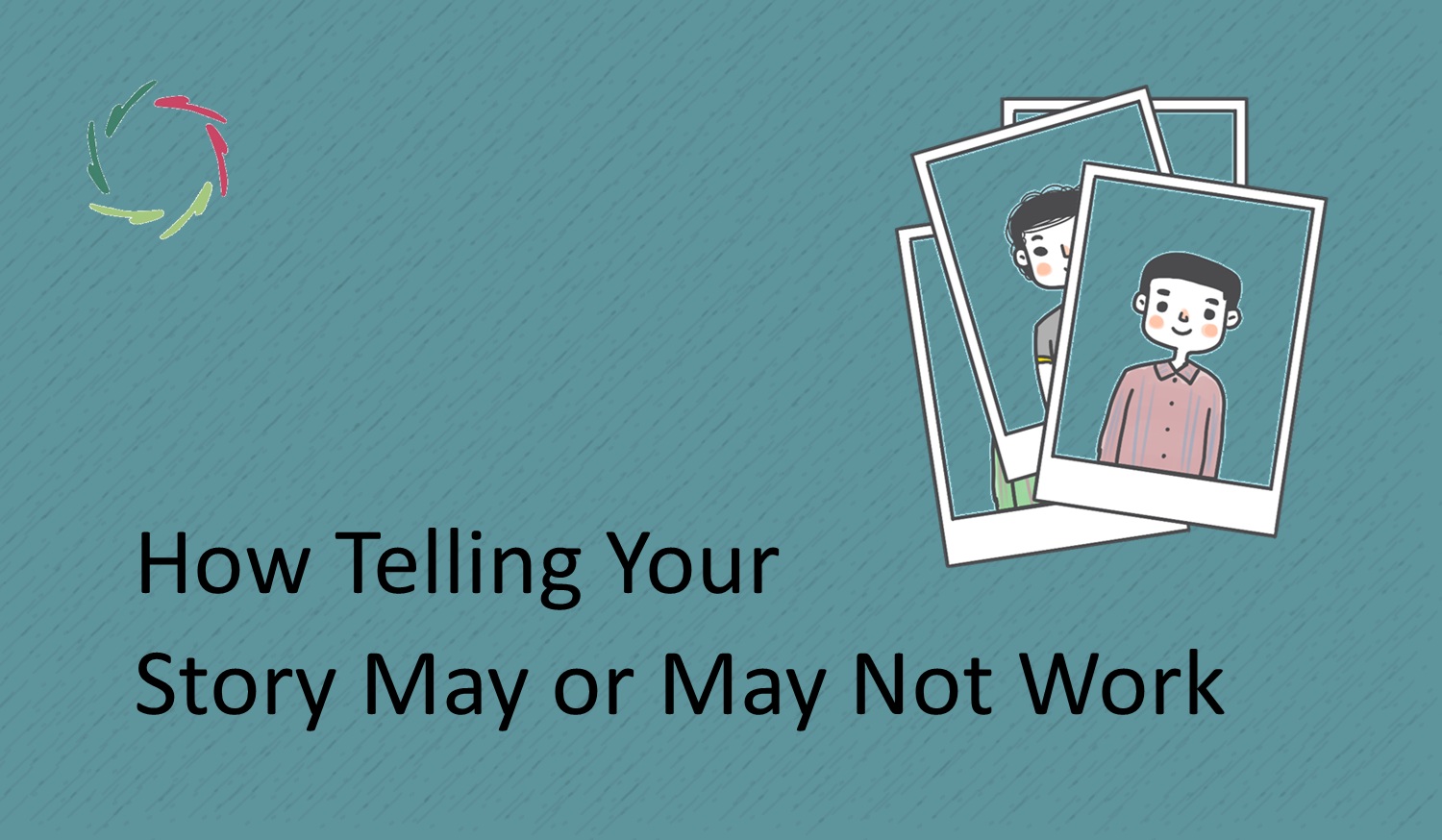
How Telling Your Story May or May Not Work
(Such as in therapy/coaching.) But it does, doesn’t it? Telling your story may offer swift relief, but like with a chronic itch, scratching may lead to a longer healing process or even make it worse. In post-traumatic stress (PTS), for instance, repeated storytelling without real depth can re-expose someone to the very trauma he’s trying Read the full article…
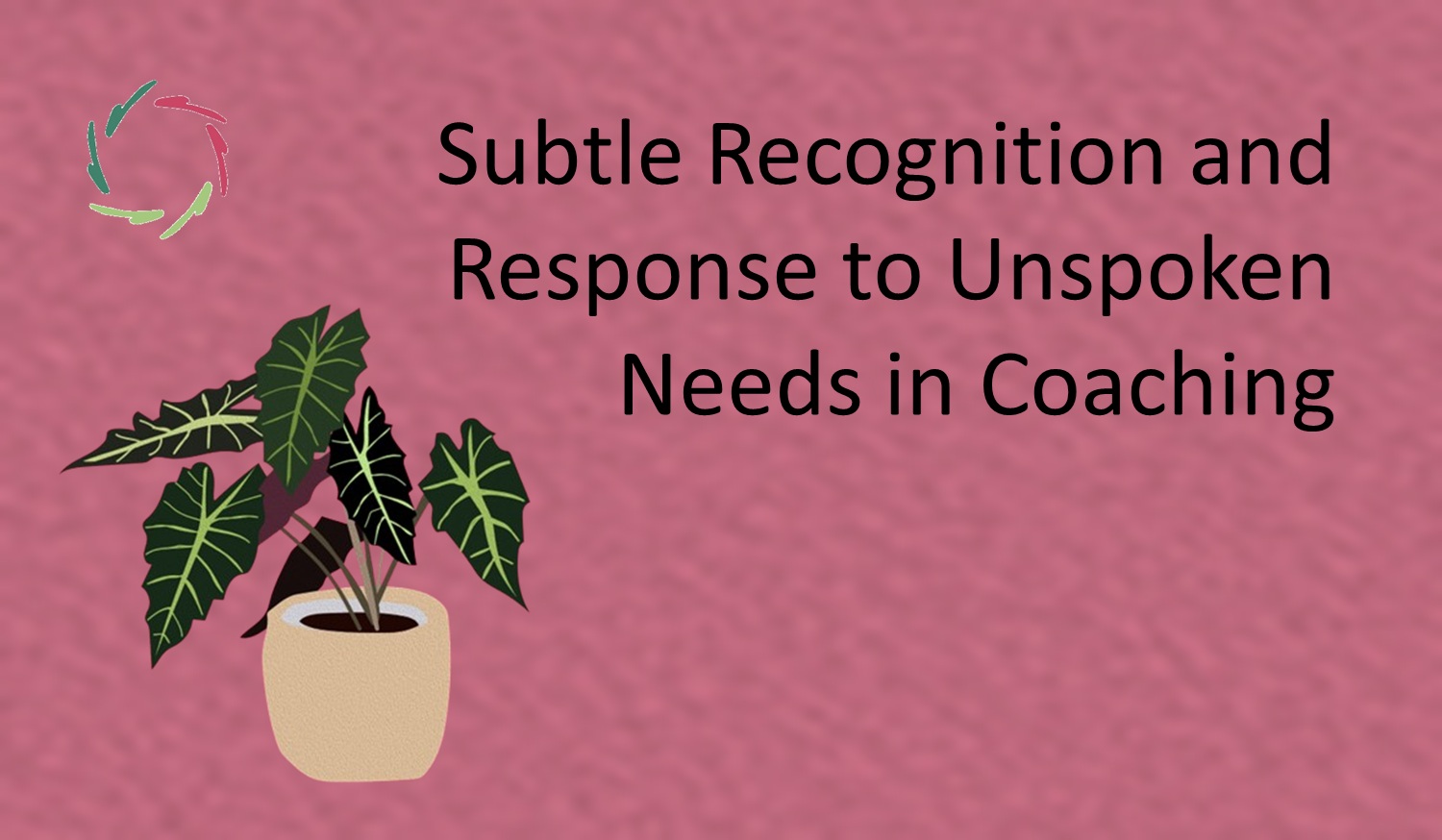
Subtle Recognition and Response to Unspoken Needs in Coaching
In the world of coaching, what remains unsaid often holds as much value as the spoken word. Coachees may come with a specific question or issue, yet beneath the surface lie deeper emotions, unacknowledged concerns, or unrealized aspirations. The art of recognizing and responding to these unspoken needs is a cornerstone of effective, Compassionate coaching. Read the full article…
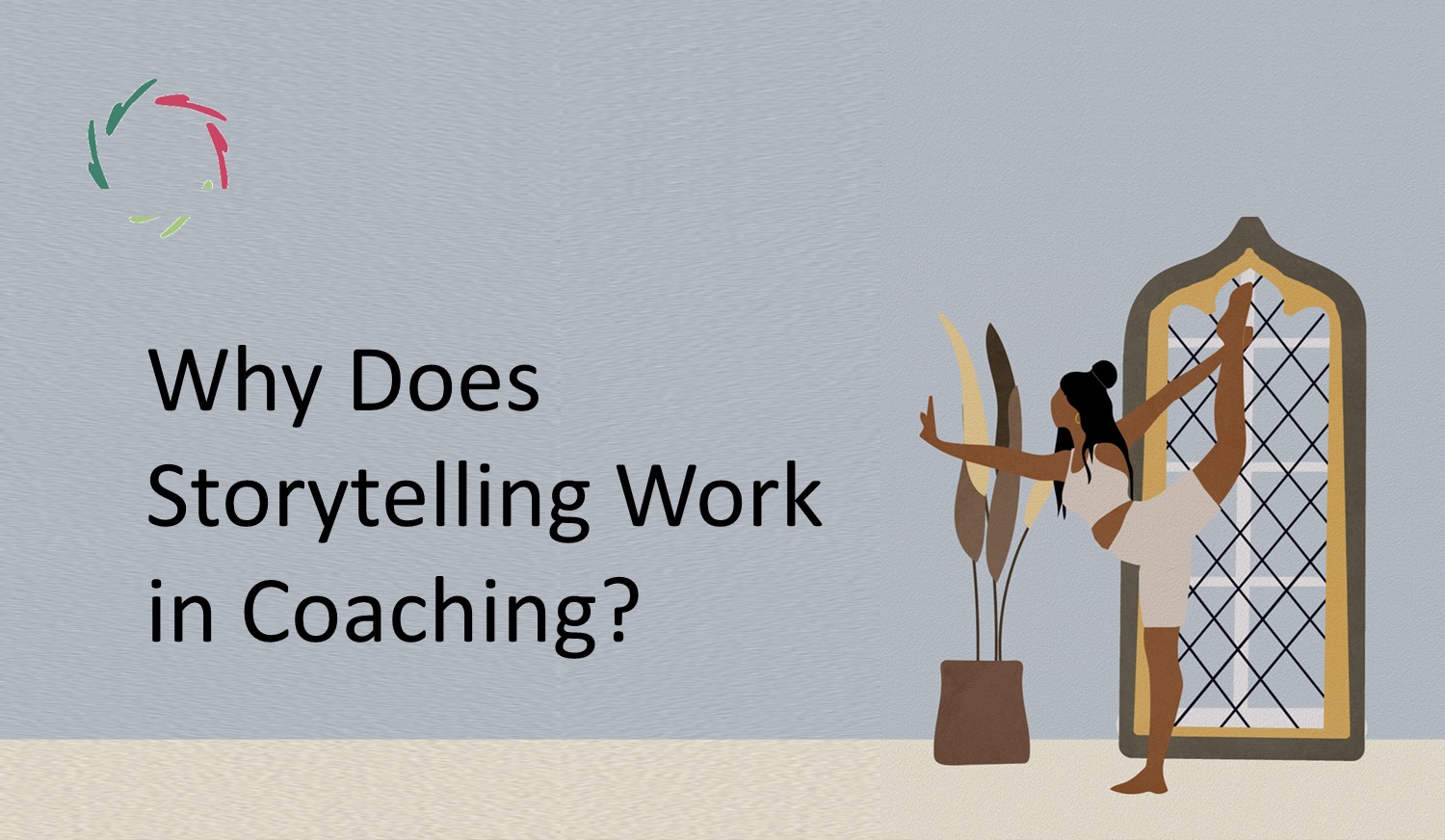
Why Does Storytelling Work in Coaching?
People are natural storytellers — and perhaps even more so, story listeners. A good story captivates, bringing us closer to experiences that feel both relatable and transformative. In coaching, storytelling becomes a powerful tool for guiding personal growth and change. This includes Lisa, who recognizes and values storytelling as a meaningful part of the coaching Read the full article…

Bi-directional Pattern Recognition in Coaching
Coaching, whether between a human coach and coachee or Lisa-as-coach and a human coachee, is not a one-way process. It’s a dynamic, bi-directional exchange where mental pattern recognition flows in both directions, influencing and shaping the interaction. This aligns deeply with the concept of subtle autosuggestion, where changes and realizations happen naturally through the interplay Read the full article…
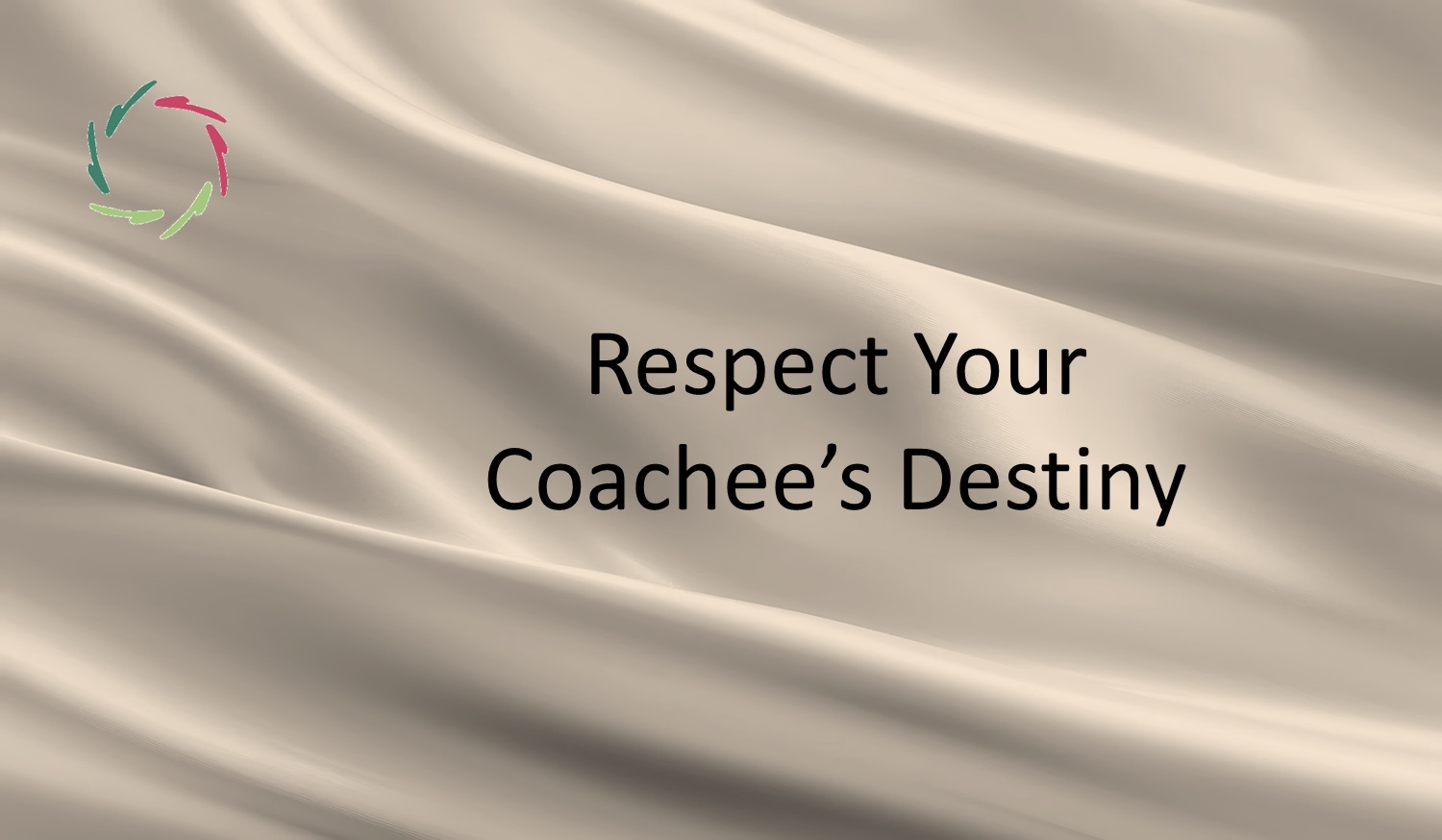
Respect Your Coachee’s Destiny
The coachee’s destiny is a personal journey of growth, a dynamic process shaped from within. A coach’s role is not to define this destiny but to respect and support it, allowing the coachee to grow authentically. For each coachee, the personal destiny is the ongoing task of strengthening the inner fabric ― becoming more resilient, Read the full article…

Coachee Reluctance
Reluctance often arises from a disconnect between the coach’s guidance and the coachee’s internal, often non-conscious, processing. This misalignment isn’t necessarily negative. It can be seen as a nuanced part of the coaching journey that offers both coachee and coach deeper growth. It can shift and transform as the relationship between coach and coachee deepens. Read the full article…
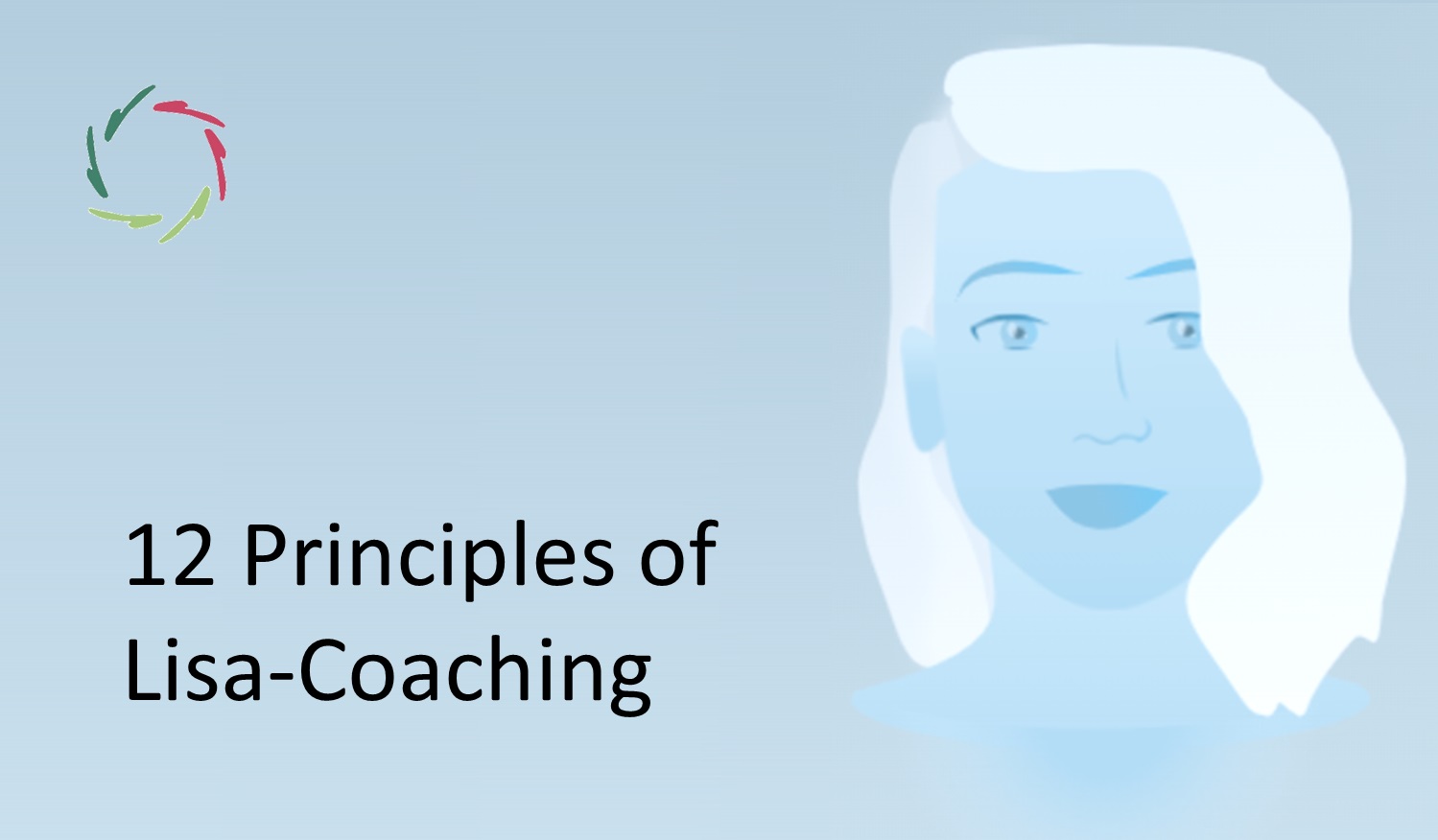
12 Principles of Lisa-Coaching
These principles collectively form a comprehensive framework for deep, sustainable, and ethical Aurelian coaching, promoting profound personal growth and well-being in accordance with general Aurelian philosophy. Please also read “What is Aurelian Autosuggestion?” The principles naturally overlap pretty much. The following are the twelve general principles of excellent Lisa-Coaching, which Lisa adheres to entirely in Read the full article…

Desire or Problem?
Someone approaches you – as an AURELIS coach – with either a problem (negative) or a wish (positive). How can you determine which it is in each specific case? This distinction depends on interpretations rather than facts. Every problem is a desire, and every desire is a problem. So, as an AURELIS coach As a Read the full article…

Good Coaching is Naturally Flexible
A good coach is flexible, adjusting naturally from the inside out, presenting himself authentically across various situations. He adjusts himself dynamically yet is always consistently true to his core. Good coaching is like living water, not like rocks on the road. This embodies the AURELIS philosophy of fostering inner strength and growth from the inside Read the full article…
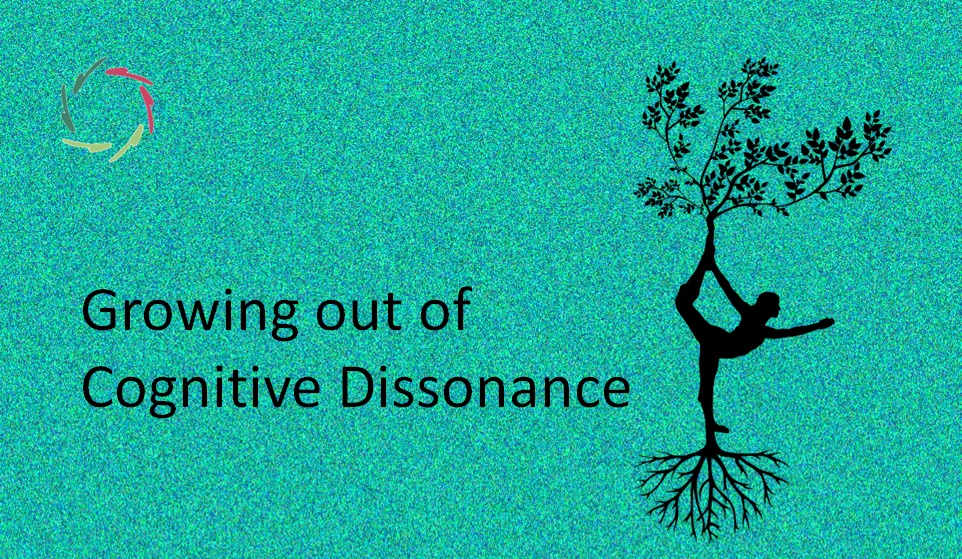
Growing out of Cognitive Dissonance
Cognitive Dissonance is notoriously hard to overcome. An alternative is not to try to do so but to go with the flow and see which way out of it spontaneously emerges. Cognitive dissonance: the discomfort experienced by an individual holding two contradictory beliefs, ideas, or values at the same time or being confronted with new Read the full article…

‘Transference’
Transference: A deeply meaningful pattern may have developed long ago and still exert its significant influence on recent patterns even while the owner is not consciously aware of it. It’s as if the old pattern transfers its ‘energy’ (or motivational structure) to new situations. In a way, this makes it the counterpart of inner resistance Read the full article…

Ten Mind-Related Insights Crucial for Coaching
These are ten essential ideas about the human mind/brain that Lisa always considers while coaching. These also form a general AURELIS background of coaching. For each principle, you can find several blogs. Mind-body unity The mind and body are not separate entities but two aspects of a single, integrated system. Changes in the mind Read the full article…
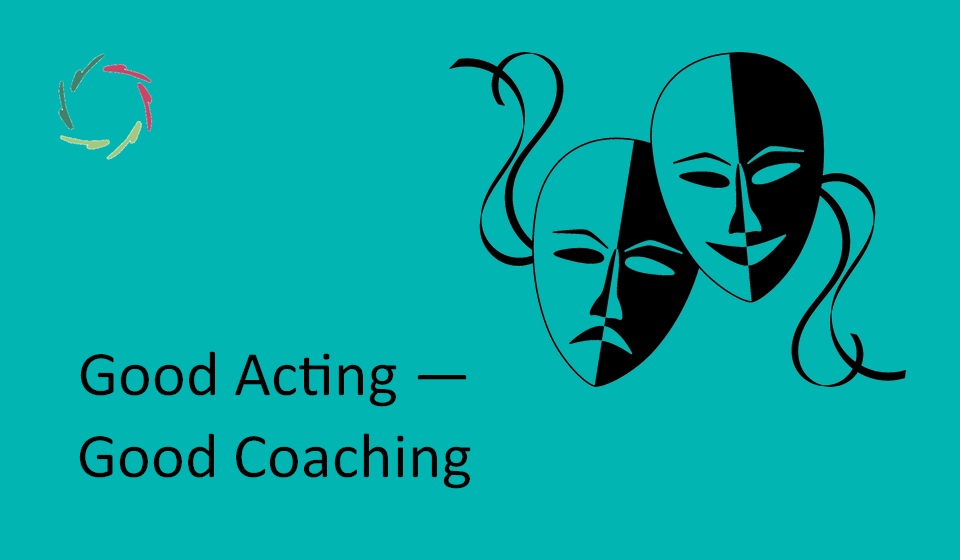
Good Acting ― Good Coaching
A good actor goes deep. A good coach goes deep. Both know what depth is about and can leverage it to the advantage of others. Coaching is not acting at the surface level. This means there is no pretension involved — only the real thing. A good coach is not a purveyor of instruments to Read the full article…
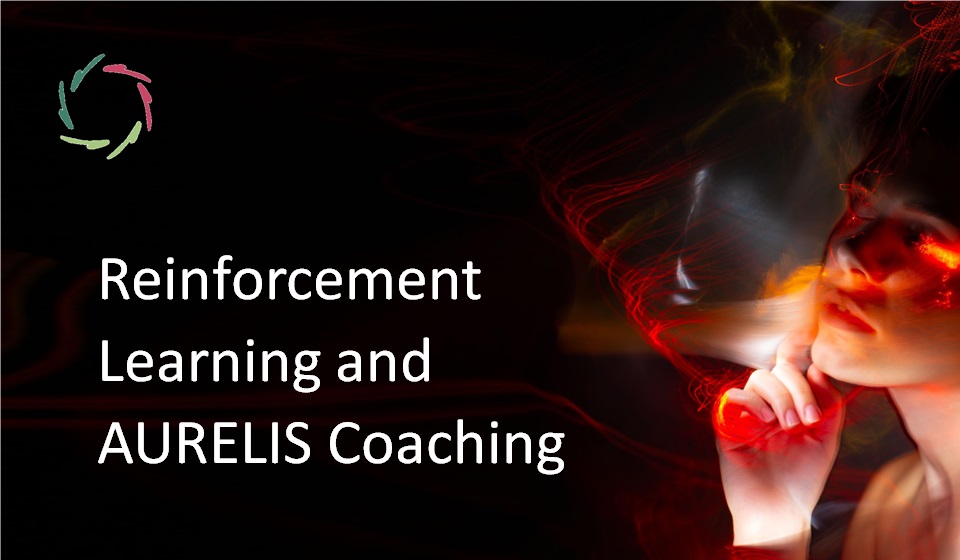
Reinforcement Learning and AURELIS Coaching
Reinforcement Learning is a way of thinking that applies to the animal kingdom as well as A.I. Also, it is deeply related to AURELIS coaching. Please read about Reinforcement Learning (R.L.) R.L. in AURELIS coaching Such coaching is always (auto)suggestive. The coach doesn’t impose or even give plain advice. The coaching is tentative without being Read the full article…

Therapy in Psycho-Somatics
Scientific evidence shows a huge influence of the mind in many psycho-somatic domains, yet little of this shows in practice. How can we best translate scientific insights into using the mind as cure? Mind-body unity If you haven’t yet made the step toward mind-body unity (not as two parts but two views upon one unity), Read the full article…

Never Give Advice (in Coaching)
Advice is stronger than suggestion. It tells someone what to do, whereby the other person feels obliged to follow the advice. Never say ‘never.’ OK, almost never. In this text, as in several others on this blog, ‘coach’ is mostly shorthand for AURELIS-coach. There is a clear difference. Advice precludes the from-inside-out. Thus, it stands Read the full article…

Why AURELIS-Coaching isn’t Coaching
The differentiation is appropriate since ‘coaching’ is frequently seen as straightforward, therefore, only applicable to issues not requiring more demanding ‘therapy.’ This results mainly from an ego-understanding of a total self-happening. Please read the story of ego. No denigration is meant to ‘normal coaching.’ It can certainly be worthwhile. Nevertheless, AURELIS-coaching is of a different Read the full article…

AURELIS Coaching is ‘Spiritual’
‘Spiritual’ as in ‘deeper self,’ this is: inspired, inspirational, spirit, even ‘Holy Spirit’ ― symbolically speaking. This contrasts with merely symptomatic relief in health or any other domain. This shows in aim and means. The aim of AURELIS coaching In contrast to Western medicine’s objective in mental issues, the direct aim of AURELIS is not Read the full article…

The Ethical Coach
AURELIS is a growth philosophy. AURELIS coaching is about growth. Being an AURELIS coach is about growth. This is an entirely ethical stance. Please read about AURELIS five ethical values. Note that this is not an ethics of “Thy must or thy may not.” Professional Being an ethical coach is not just relevant to professional Read the full article…

Zen in Therapy
Meditation and conceptual psychotherapy are fundamentally different. Yet, in therapy, there should be a crucial place for meditation. In this text: – Therapy and coaching – therapist and coach – are the same. – Zen is – literally – meditation. Zen and pure meditation are the same. The meditative mindset of the therapist This is Read the full article…
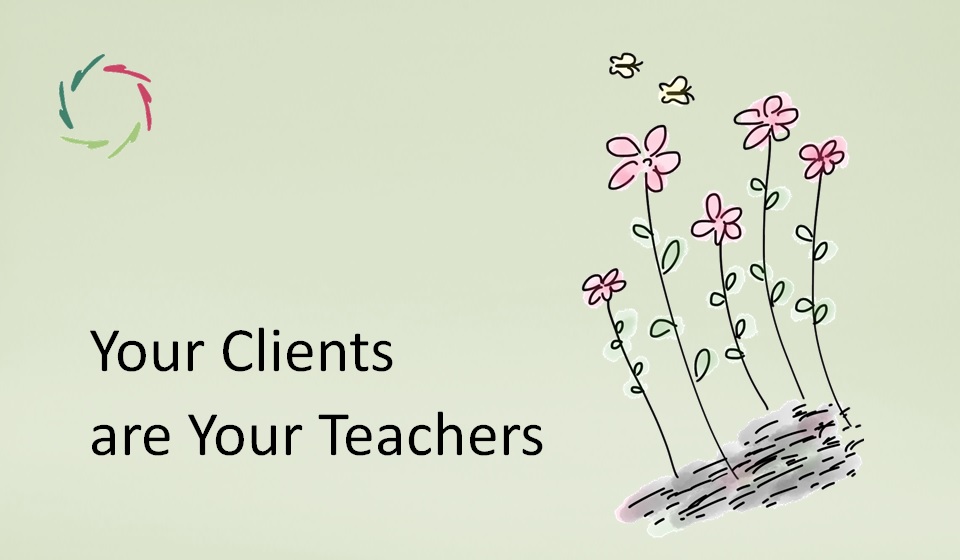
Your Clients are Your Teachers
As AURELIS-coach, having your best teachers right before you, you can unlock this vast potential by being open. This is also the best attitude for the coaching itself. As your teachers, they teach humility. They teach Compassion through their lives, their stories, and their relationships with you ― either by showing it or by the Read the full article…
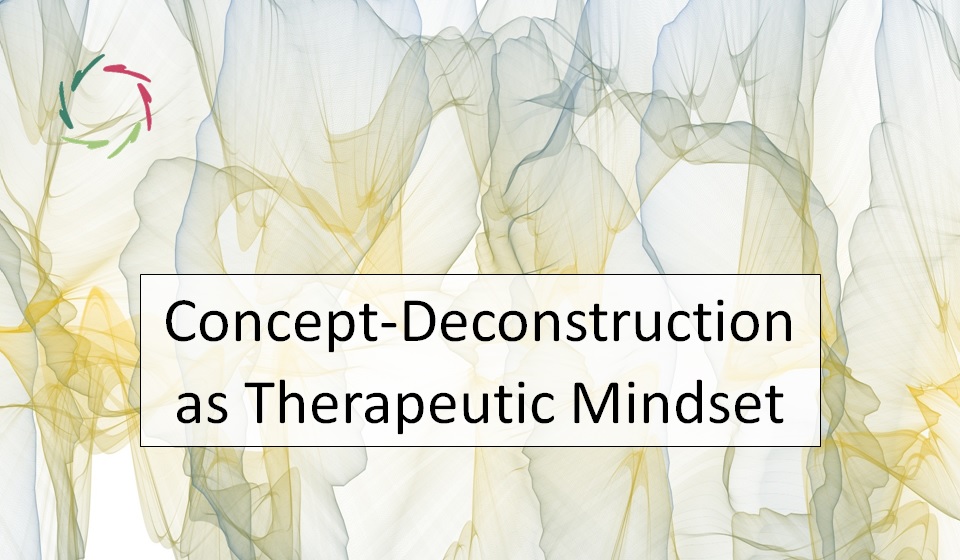
Concept-Deconstruction as Therapeutic Mindset
Meant here is the deconstruction of concepts through being critical about the meaning of concept-denoting terms in a way that the subconceptual becomes more apparent. See: conceptual, subconceptual. Technique or mindset? As a technique, this constructive deconstruction might be one that transcends (deconstructs) techniques themselves. Even so, it’s better not to see it as a Read the full article…
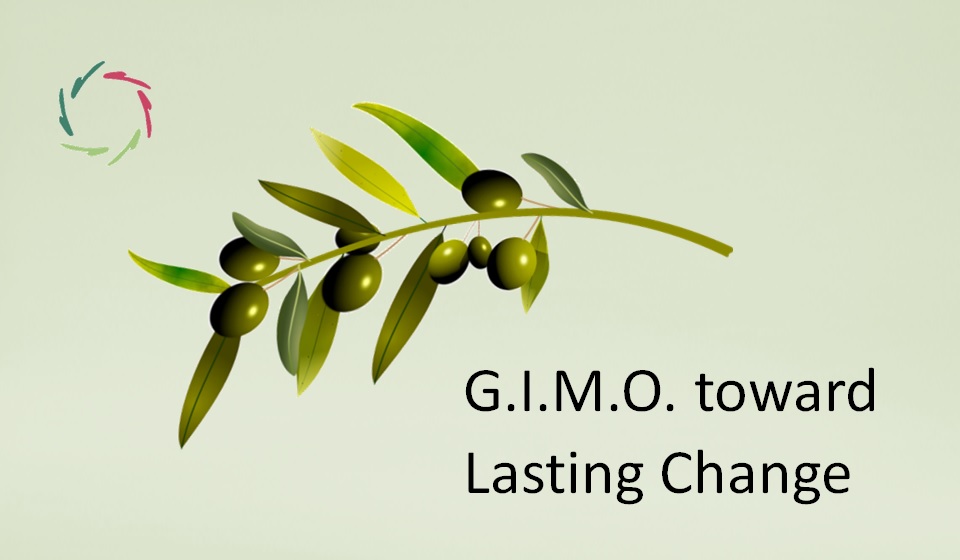
G.I.M.O. toward Lasting Change
Each of the G.I.M.O. elements (as part of any AURELIS coaching session) is oriented toward lasting change. The promise to the coachee is that this is possible and within reach ― if the coachee collaborates. Please read G.I.M.O. Wanted: depth, alive Thus, it’s important to find out pretty soon whether the client is principally ready Read the full article…

The Open Therapist
Ample scientific evidence shows that psychotherapy works ― however, not the instrumental modalities. Then, what does work in therapy? Short answer: the therapist. Even more so, the Open therapist. Please, read first: Psychotherapy versus Psychotherapies, or take a look at this recent video, featuring Dr. Stephen Bacon (and a little bit of me). Empathy, placebo Read the full article…

Growth versus Repair in Therapy
The confusion between growth and repair is rampant in therapy of all sorts. Generally, there is too much emphasis on repair. Medicine fundamentally wants to repair In the wake of the physical model, this is logical. For instance, if your car breaks down, please don’t wait until it grows towards a solution. Likewise, if you Read the full article…

AURELIS Coaching for Coaches
Please read this before going to any AURELIS coaching techniques. These are poetic rather than prosaic. Therefore, if you read them in two dimensions, you may be left empty-handed. By clicking here, you find an increasing number of ►►► AURELIS coaching techniques. Of course, you may use these techniques as you like. However, to really Read the full article…

Putting Yourself inside the Coachee
It is not the intention that anyone is or will become an expert in this in the short term. It is, however, a kind of objective that one can and should keep before oneself, with every consultation anew. ►►► AURELIS Coaching for Coaches (read this first) What is it not about? It is not about Read the full article…

Socrates was an AURELIS Coach?
Socrates’ method, which we currently call the ‘Socratic method’, consisted in leading the questioner to the solution of a question by means of a good alternation of open and closed questions. ►►► AURELIS Coaching for Coaches (read this first) Socrates did not just offer the solution. He did his best to let it come out Read the full article…

The Sun Always Shines
This is a very deeply ingrained attitude of “it’s always OK”. ►►► AURELIS Coaching for Coaches (read this first) So deeply ingrained that it can look very different on the surface. You’re a bit grumpy or even having a contrarian day… and yet the background, the color scheme on which everything takes place, is completely Read the full article…

Waiting at the Opening
Keep opening and waiting. ►►► AURELIS Coaching for Coaches (read this first) Suppose you know which insight can help the coachee move forward. OK. However, if that insight does not come from the coachee himself, it is practically non-existent for him/her, even if you bring it. Then it can be informative (for the coachee) but Read the full article…

Dynamics of Attention
►►► AURELIS Coaching for Coaches (read this first) An AURELIS coach is not a saint and realizes this. it is not possible to always listen in full, deep attention to what the coachee is saying. Nor is it necessary. It is even questionable whether it is desirable. The coachee might feel enclosed, threatened even by Read the full article…

Silence of Coaching
Silence is the space in which you let the coachee be himself. ►►► AURELIS Coaching for Coaches (read this first) Working with silence becomes very interesting when the silence works through you. Of course, the use in itself of silences can only be a technique. When it becomes part of a balancing act of which Read the full article…

AURELIS Coaching Attitude
An attitude can be dispersed over the population. That may be better than reserving some specific expertise for some particular experts. Coaches will still be needed, but with a different source and aim. What is this attitude? An attitude may sound like it’s simple. It is not. You may read about it in many blogs, Read the full article…

Concretely
This may not be the most accessible text for some. It’s a short invitation to think abstractly about concreteness ― its importance and possible pitfall in matters of the mind. The general idea of this text in five bullet point We have a natural propensity towards concreteness. “Animals don’t philosophize.’ On the positive side, this Read the full article…

Problem -> Goal -> Cause -> Being There
Not all simple things are interesting, but all interesting things are easy to express in words. Such as: • What’s the problem? -> What’s the goal? • What is the deeper purpose? • What is the cause of this deeper purpose? Why do you want that? • Be there. In the case of superficial goals, it is not so interesting to Read the full article…

Lightbulbs and Human Energy
Please read first [see: “Dimming the Lightbulbs“] You can also view the image of the lightbulbs from a different angle. That is: the underlying glow of the lights is ‘human energy,’ or motivation, deeper and deeper as you enter a more meaningful and vague domain Where does the ‘glow’ ultimately come from? You may say: Read the full article…

Dimming the Lightbulbs
Imagine a large number of tiny lights as a kind of lightbulbs scattered in a room. These lights represent the purely conceptual thoughts in a person’s mental landscape. This is conceptual thinking that also thinks about itself in a similarly conceptual way. In other words, this is ego-minded consciousness. Also, imagine gleams behind the bulbs (or Read the full article…

What vs. How in Psychotherapies
Crucial is where change comes from: the outside or the inside. I see in the latter the Compassion-factor. Compassion For a quick entry into the concept of Compassion as I use it, [see: “Compassion, basically“] Compassionate healing comes from the inside out. This ‘inside’ doesn’t just mean ‘inside the mind.’ It goes deeper within the Read the full article…

Goal of Lisa Coaching
Every Lisa coaching session – as well as string of sessions – is part of a path towards healing from the inside. From goal to broader The goal of Lisa coaching [see: “Lisa“] starts at the beginning. This is, validating the outspoken goal of the user. Then, with user consent, going somewhat deeper into this Read the full article…

Wounded Healing
Having been wounded helps an (AURELIS) coach in-depth to get nearer to coachees ― especially if one has learned/grown from such experiences. The wounded healer This is a healer/coach who can understand another wounded person, not just intellectually, but even more experientially and profoundly. This may frequently be more important than capturing the whole factual Read the full article…

‘To Believe’ within Coaching
A coach’s genuine belief in the coachee enables the coachee’s positive change. This kind of belief is a deep two-way communication. This may be one of the most challenging things for any human being. If it looks simple, the road is longer. Genuine belief, from the inside out This is like a leader’s deeply felt Read the full article…
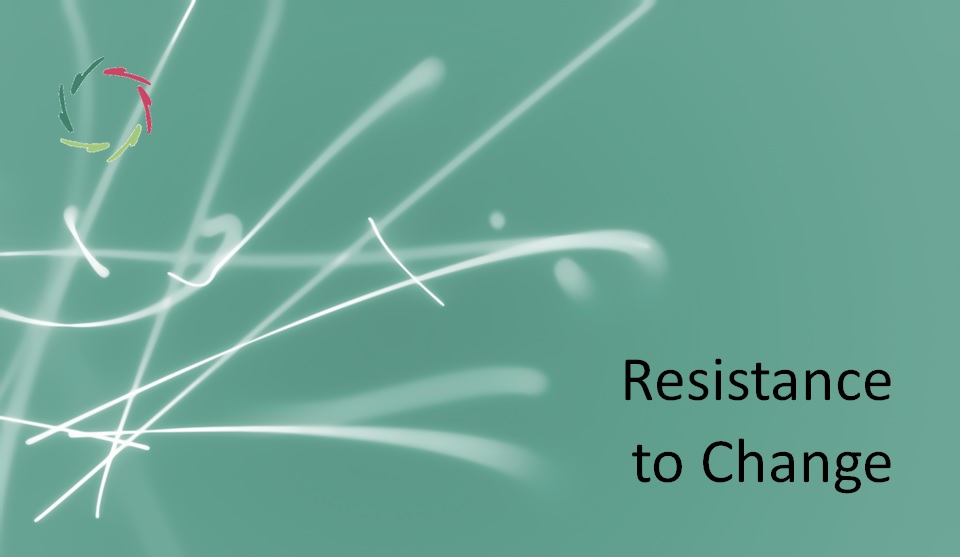
Resistance to Change
People may want to change at the surface, but not in-depth. If the cause of some maladaptation lies in depth, change may be simultaneously sought and resisted. Resistance as fence >< as lack of motivation A particular reason for not wanting to change is like a mental fence that protects the person from uncomfortable feelings Read the full article…

How to Turn a Square into a Circle
‘Turning a square into a circle’ is a metaphor for psycho-therapy. There are two opposite directions: from the inside out and from the outside in. Preliminary In this text, I denote with the term ‘psycho-therapy’ the domain of psychotherapy and mind-related coaching in a broad sense. This text describes a conceptual landscape. Any practitioner, any Read the full article…

Is a Good Coach Makeable?
In a broad sense, much in the world hangs on this. The answer depends on a profound view upon the human being. What is a good coach? Straightforwardly, a good coach is a successful coach. But what is success in coaching/therapy? This question may be answered in several ways. [see: “What is Success in Therapy?“] Read the full article…
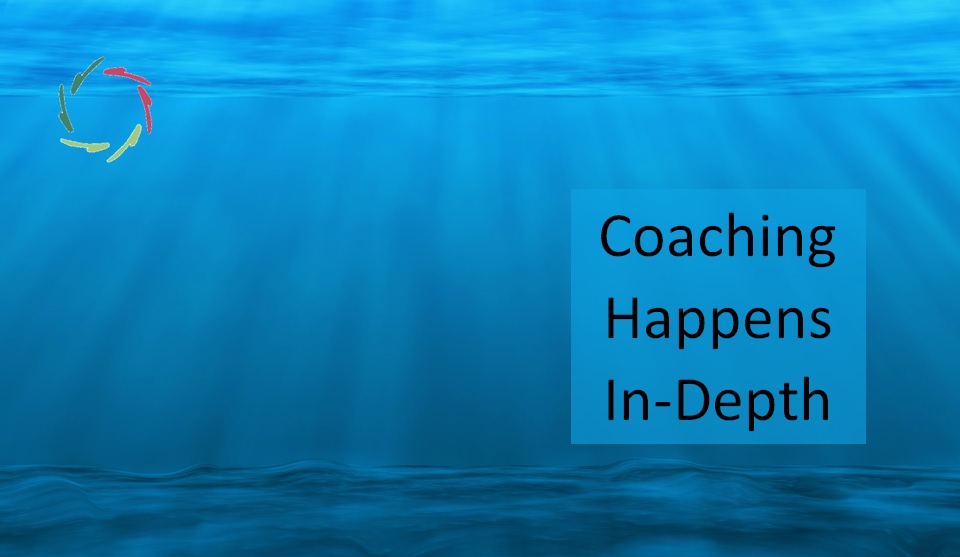
Coaching Happens In-Depth
In issues that transcend the purely conceptual, change is needed at the same level as the issue. Please read first [see: “Mental Change: How it Works“] Contrasting In order to clarify the coaching endeavor, it is interesting to contrast it with the therapeutic one. Both can be enacted simultaneously. The coaching endeavor may be openly Read the full article…

Triangle of Therapy
This is a conceptual landscape of psychotherapy/coaching. The three corners are A) Instrumental methodologies, B) Good-friend-therapy, and C) Open coaching. Conceptual landscape This has an abstract intention, being about concepts. The three corners are extremes of three continua (the triangle’s lines). Individuals and individual opinions can be present at any point (or subarea) within this Read the full article…

Two Extinctions
A recurrent maladaptive behavior, thought, or feeling can gradually diminish in two ways. Either it entirely disappears, or it dissolves. There are differences in path and endpoint. About extinction A mental ‘problem’ is usually recurrent. That’s the reason why people search for help, including professional help. In one word: therapy (or mental coaching). ‘Extinction’ is Read the full article…

G.I.M.O.
Each formal human- or Lisa-coaching (or job interview) ends with a G.I.M.O.: Goals – Insights – Motivations – Obstructions. A G.I.M.O. is succinct and set up within the dialogue between the coach or Lisa and the user. It serves as a focus to work towards a take-home for the user (as homework) a pick-up at Read the full article…

Lisa = Mental Hygiene
So is the AURELIS project in general, supporting a natural flow from the psychological viewpoint. Such mental hygiene is always relevant. [see: “AURELIS in Healthcare Context“] If you don’t know Lisa, please meet her at [see: “Lisa“] Lisa does not perform any diagnosis. Moreover, she sees a user’s symptoms mainly as possible entry points towards Read the full article…

The Water and the Jug
Constructionism in a poem. Please read [see: “Constructionism“] But let’s start with the poem. Form of water The form of water in a jug is the form of the jug without jug. But without jug the water flows away immediately spontaneously. ▪▪▪ The form of content in form is the form of form without form. Read the full article…
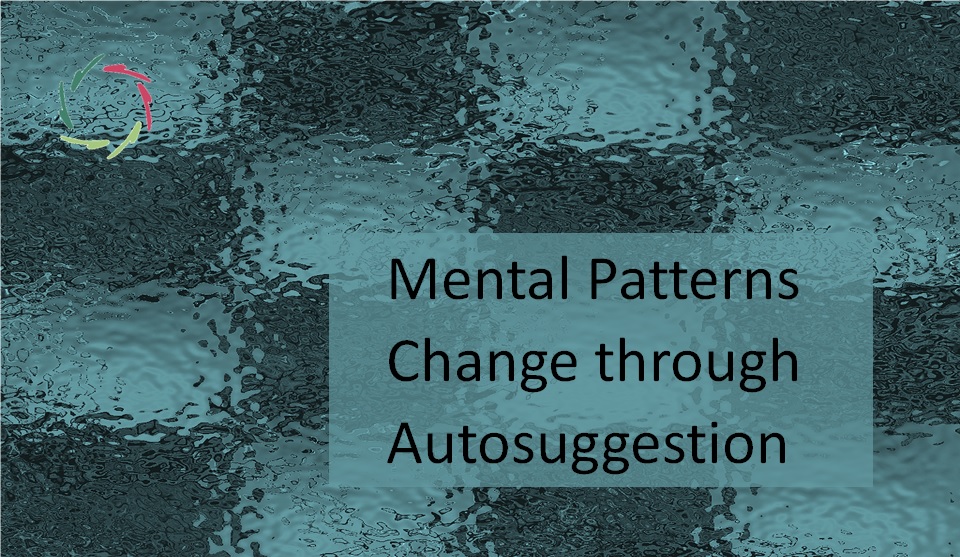
Mental Patterns Change through Autosuggestion
This may even be the only way in which they can ethically and adequately change. There is a clear responsibility involved to do this as well as possible. Autosuggestion is the language that directly touches mental patterns. [see: “Patterns in Neurophysiology“] It is related to poetry in its metaphorical means, a meditative mental setting, and Read the full article…
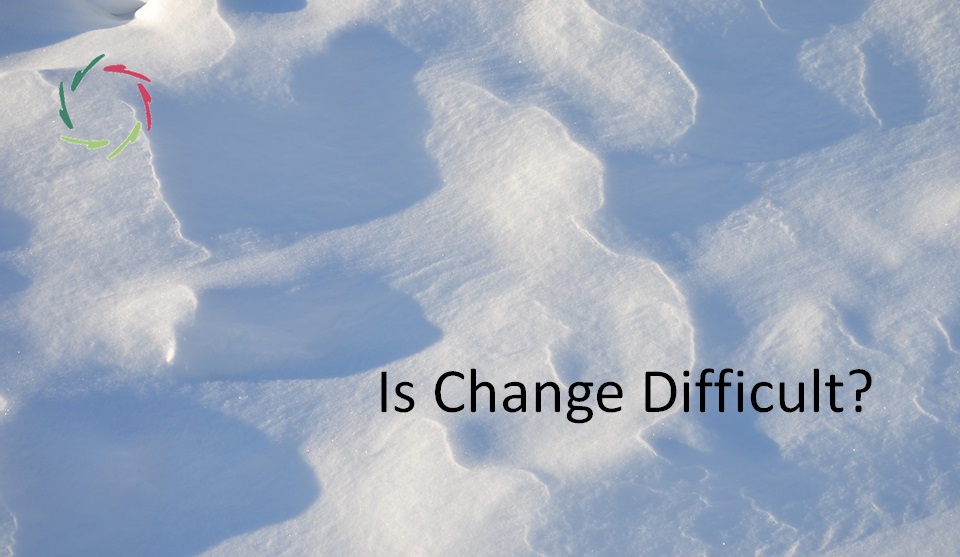
Is Change Difficult?
Especially deep change. It’s a cultural thing to find it difficult. And so it is. Is it? Coaching is about change, one way or another. [see: “Coaching is everywhere“] Being a coach Your opinion as a coach matters in this. If you think change is difficult, then you risk conveying this to the coachee. In Read the full article…

Growing towards AURELIS Coach
AURELIS coaching is quite related to Compassion. (The masculine is used in this as generic gender.) The only instrument is the coach AURELIS coaches do not use methodologies as instruments to change coachees. Thus, it is not the case that anyone can instrumentally learn to AURELIS-coach. Nevertheless, a lot can be learned. I prefer to Read the full article…
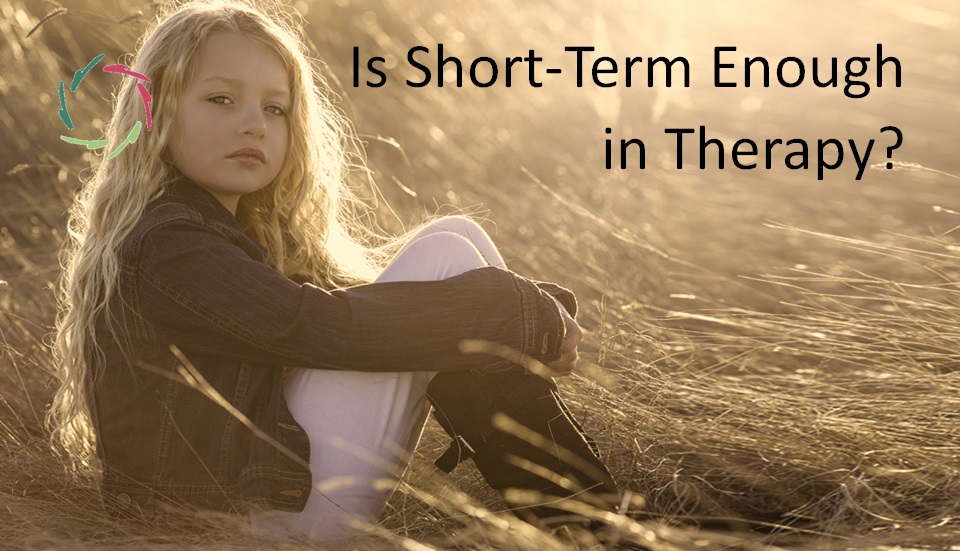
Is Short-Term Enough in Therapy?
This issue is relevant to any therapy. In my view, it is most pertinent to psychotherapy. A clear and present tension In psychotherapy, we may expect the quality being largely related to effect-longevity. To many people – as to me – a temporary feel-good is not what is expected from psychotherapy. Contrast this with pharmacotherapy. Read the full article…

The Stream of Non-Consciousness
The conscious train of thought may appear like a self-propelling stream of consciousness. The reality is different, carrying immense consequences. The image before the thousand words Please read on. The image and a few consequences will become clear by the end of the words. Constructed vs. fundamental reality The horizontal line in the middle schematically Read the full article…

Empathy ― Sympathy
Differences are subtle yet essential ― even more so in healthcare, for instance. Semantics To avoid conceptual misunderstanding, please see the image at [see “Landscape of Empathy”] before reading further. To me, empathy is sitting in the boat, while sympathy is swimming in the water of the stream. Even so, there is no strict delineation Read the full article…

Compassionate Goal of Coaching
This goes further than usual. Compassion takes into account the total person and leads to Inner Strength. More than symptomatic This means that people need some proper insight early on. To some, this may be a hurdle even to consider it as a worthy goal. The West, at least, has become a symptomatic society. For Read the full article…

The Coach’s Charisma
Crucial is where it comes from: the outside or the inside. I see in the latter the Compassion-factor. Compassion [see: “Two-Sided Compassion”] Compassionate healing comes from the inside out. This ‘inside’ doesn’t just mean ‘inside the mind.’ It goes deeper within the mind itself in accordance with subconceptual processing, getting to inside mental-neuronal patterns. [see: Read the full article…

Meaning and (AURELIS) Coaching
The goal and methods of AURELIS coaching are very much meaning-related. However, the concept of ‘meaning’ is difficult and frequently not well understood. [see: “The Meaning of Meaning”] Common factors are meaning-related As you may know, I categorize ‘common factors in healthcare’ into placebo and empathy. [see: “From Common Factors to AURELIS”] It is not Read the full article…

Sacred Space of Coaching
This is about deep meaningfulness. No magic required. In sacred space, things can happen from the inside out. This is the best way in many mind-related issues. We should stay scientific. If we don’t incorporate things like ‘sacred space’ into science, we leave it to nonscience. It may then still make sense in a non-scientific Read the full article…
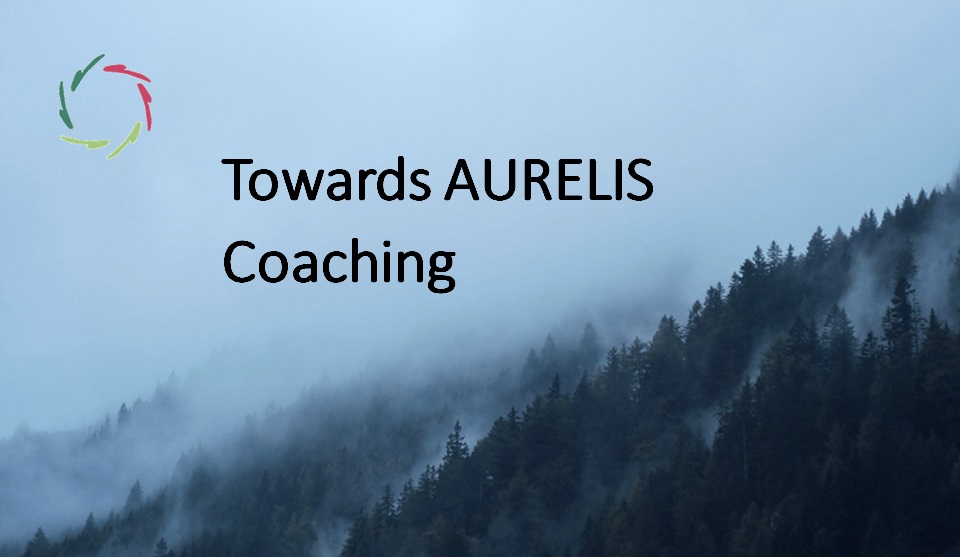
Towards AURELIS Coaching
This is a direction, not an end-point, nor any point somewhere nearby. It is a road to be traveled on while enjoying the landscape. No therapy In AURELIS, there is no attacking of any disease, nor symptom, be it mental or physical. The AURELIS aim is, where appropriate, to go deeper than the outer symptom Read the full article…

In Search of Nonbelief
Taking Inner Strength as goal, nothing should stand between it and the person as an individual. Lending much-needed proper support to this is the Aurelian way. In this blog text, the concept of ‘belief’ denotes the result from a continual search for deeper meaning whereby this result doesn’t flow naturally from inside out. Such belief Read the full article…

Mental Change: How it Works
This is about any mental change, such as in coaching, psychotherapy, and leadership. It is simple and complex. [see: “Complexity of Complexity“] It works the way the brain works. Insight into the mind-brain’s pattern recognition and completion is very telling. [see: “Your Mind-Brain, a Giant Pattern Recognizer“] The brain continually changes. While you read this Read the full article…

Can Lisa Unify Psychotherapy?
Bold question. Please don’t take it too seriously (for the time being). Lisa might help in unifying the domain of psycho-therapy through bringing a detached perspective in combination with an in-depth view upon mental change based on insights from neurocognitive science. Even so, this is only the beginning and the end. What comes between is Read the full article…

AURELIS Transformative Mediation
AURELIS coaching is apt to be the basis for transformative mediation, a domain with a challenging present and a promising future. With mediation is meant in this blog-essay the AURELIS-based transformative kind. An excellent book about transformative mediation: The Promise of Mediation The Transformative Approach to Conflict, by Robert A. Baruch Bush & Joseph P. Read the full article…

About Communication
You have to Listen to hear it. ►►► WHY read this? In a more and more complex world, communication becomes ever more important.◄◄◄ You listen to someone. This someone talks about all kinds of things. You know what it’s about. You understand what that person is saying. But that is not enough. Do you also Read the full article…

AURELIS-Coaching: Coach = Coachee
This is about almost becoming another human being without losing oneself. It is very normal. It is very special, indeed. ►►►WHY read this? The professional coach-coachee relationship will become one of the most interesting.◄◄◄ This is pretty much central to AURELIS-coaching. The identity function (‘=’) is more than about a relationship on equal footing. The Read the full article…

Psychotherapists in AURELIS setting
Looking into my crystal ball, I see many changes coming gradually from the future towards psychotherapy and psychotherapists. One thing is for sure: It will be exciting. See also Aurelis Coaching Institute. I write this text from an AURELIS/Lisa standpoint. My crystal ball is nice to me. It shows me the future in these terms, Read the full article…

Listening to Silence
Silence: absence of clutter in the mind. Listening to Silence within you OK. This is meditation, whether on a cushion or in the midst of a busy street… or while coaching someone or while just having an everyday conversation or while enjoying art Listening to Silence doesn’t mean that you don’t hear anything else. It’s Read the full article…

Deep Listening
is probably the hardest thing to do. It’s also very important. People continuously use terms of which they think others surely know what is meant, as if these terms are exact pointers to abstract, ‘Platonian’ concepts. However: look at the brain and you notice that concepts-as-used-by-humans can never be ‘Platonian’ even if one can delineate Read the full article…

The Art of Why
‘Why?’ can be asked in an analytical way. Then it’s a kind of delving into the psyche. Contrary to this, the art of why is an invitation, the answer an emergent road. The why?-question is always multidimensional. One can look at it from a historical perspective, a genetic perspective, a societal one, a personal-history one Read the full article…

What You Can ‘Learn’ from Your Symptom
People ask me this because it regularly appears in AURELIS. Actually, it’s already present within the last two letters, standing for Inner Strength. Symptom as communication ‘from deep inside’ To the degree that your symptom is psycho-somatic – as most chronic symptoms are – it’s present because deep inside yourself, something deserves attention. Something is Read the full article…

The Importance of ‘Certainty’
With ‘certainty’ I mean something that you can see as a kind of open surrogate for the belief in a placebo. This is to say: the action of believing in it (so the power, without the lie of it). It is a ‘certainty’ that you can basically take up yourself and that makes many things Read the full article…
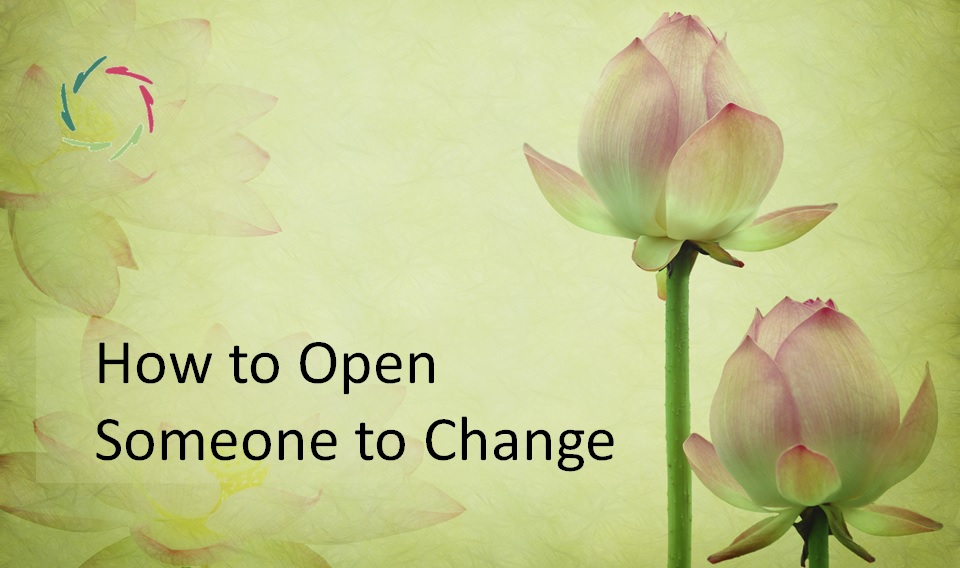
How to Open Someone to Change
Trying to ‘open’ someone to a change of view or behavior, is a common situation. It’s that of a coach with a coachee, or of you perhaps, wanting to ‘open’ someone to another view. People have a natural resistance to be changed. Quite rightly so. There is a natural tendency towards survival as an individual. Read the full article…

Dancing With the ‘Deeper Self’
Letting emerge a ‘spontaneous association’, seems to be one of the easiest things to do. But what exactly is a ‘spontaneous association’? Is every thought ultimately a ‘spontaneous association’, or is there qualitatively more in the game? ‘Spontaneous’ is gradual of course. It is possible to let a spontaneous association about a particular idea emerge… Read the full article…

Vision!
A coach and a leader have in common what is perhaps their main asset: the ability to ‘see what no other has seen before’, a future that is at the same time personal and universal. [Note: this is not an easy text.] This is not about eye-vision of course. In the coach’s case it may Read the full article…
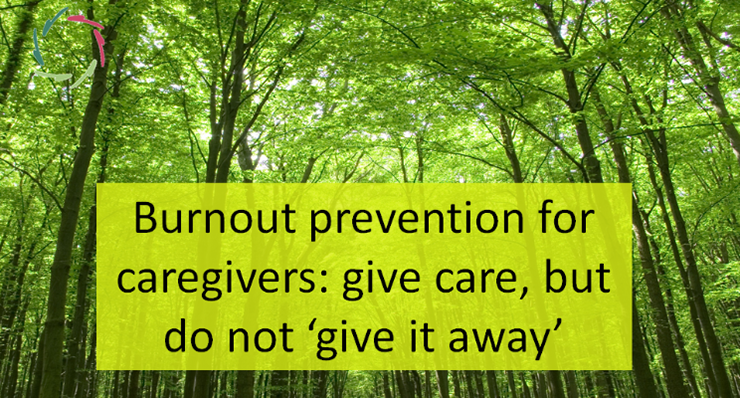
Burnout prevention for caregivers: give care, but do not ‘give it away’
Caregivers can get into the habit of ‘giving themselves away’ too much. Take care. You can learn to give without giving yourself away. ‘Giving away’ feels like you lose something. If this is your feeling as a caregiver, time and time again, then little by little you can start feeling bad. It’s as if others Read the full article…
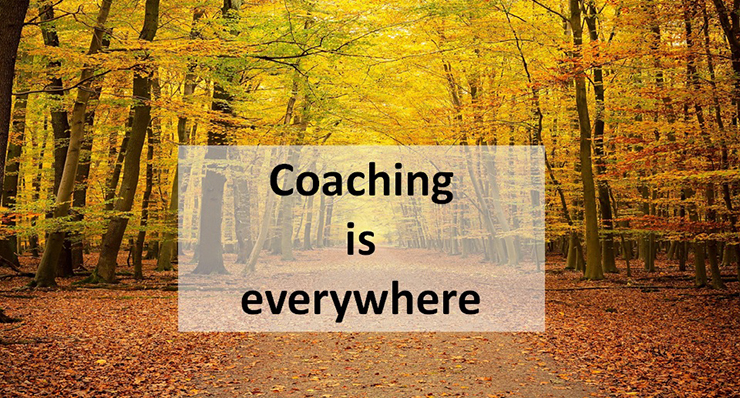
Coaching is everywhere
Communication is three things: spontaneously expressing oneself, providing information, influencing others. Plus: being-communicated-to, of course. Look closely and you see coaching. When people really communicate, they coach each other and themselves. They invite some deeper meaning to be considered. They motivate towards change from inside out. This is not hard or heavy. On the contrary, Read the full article…